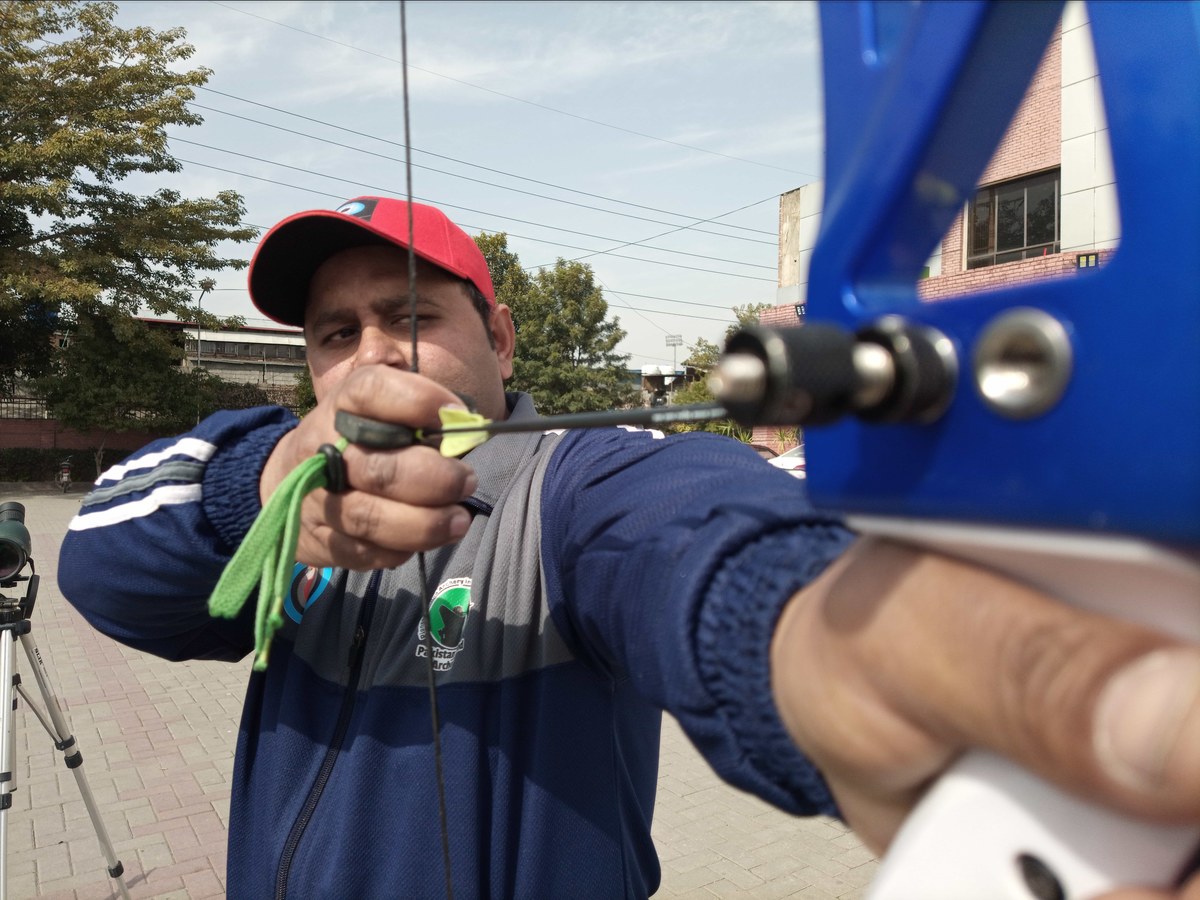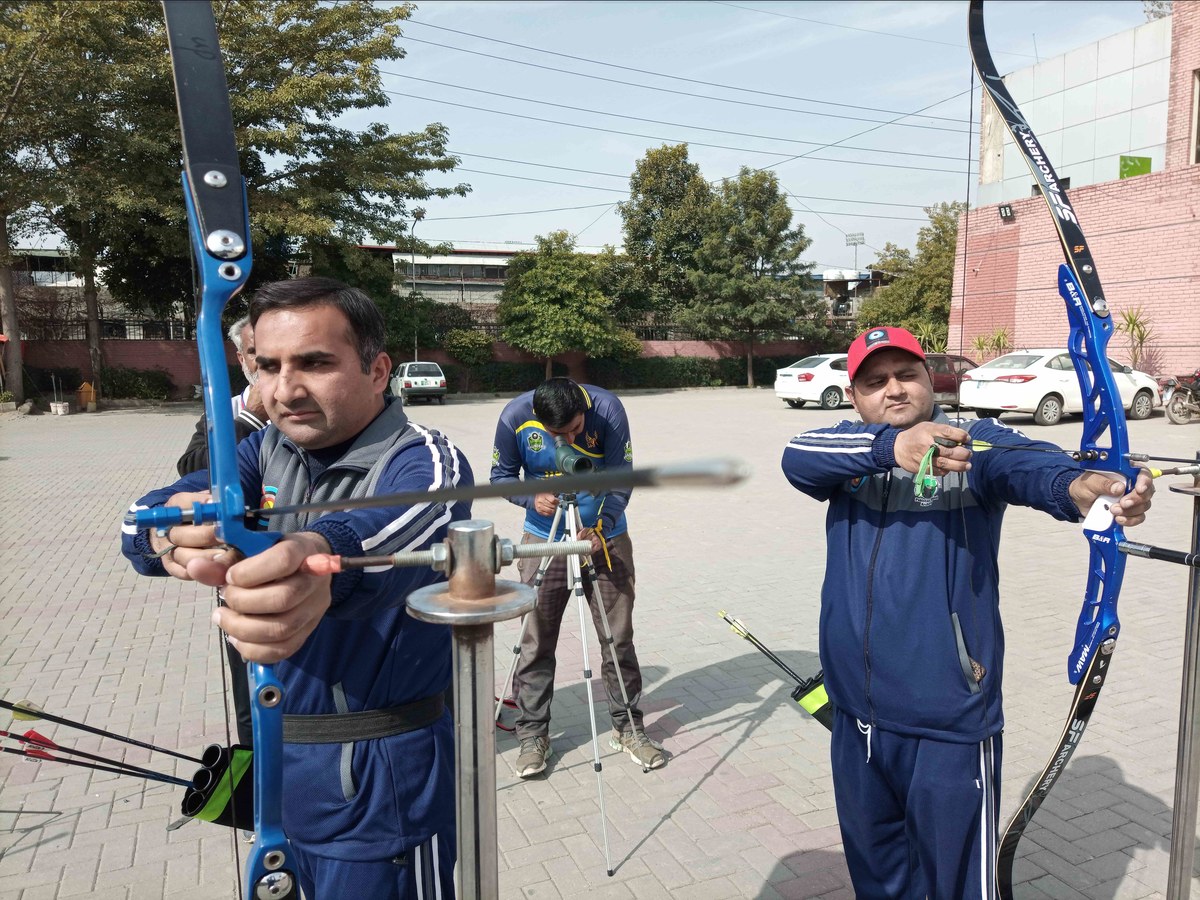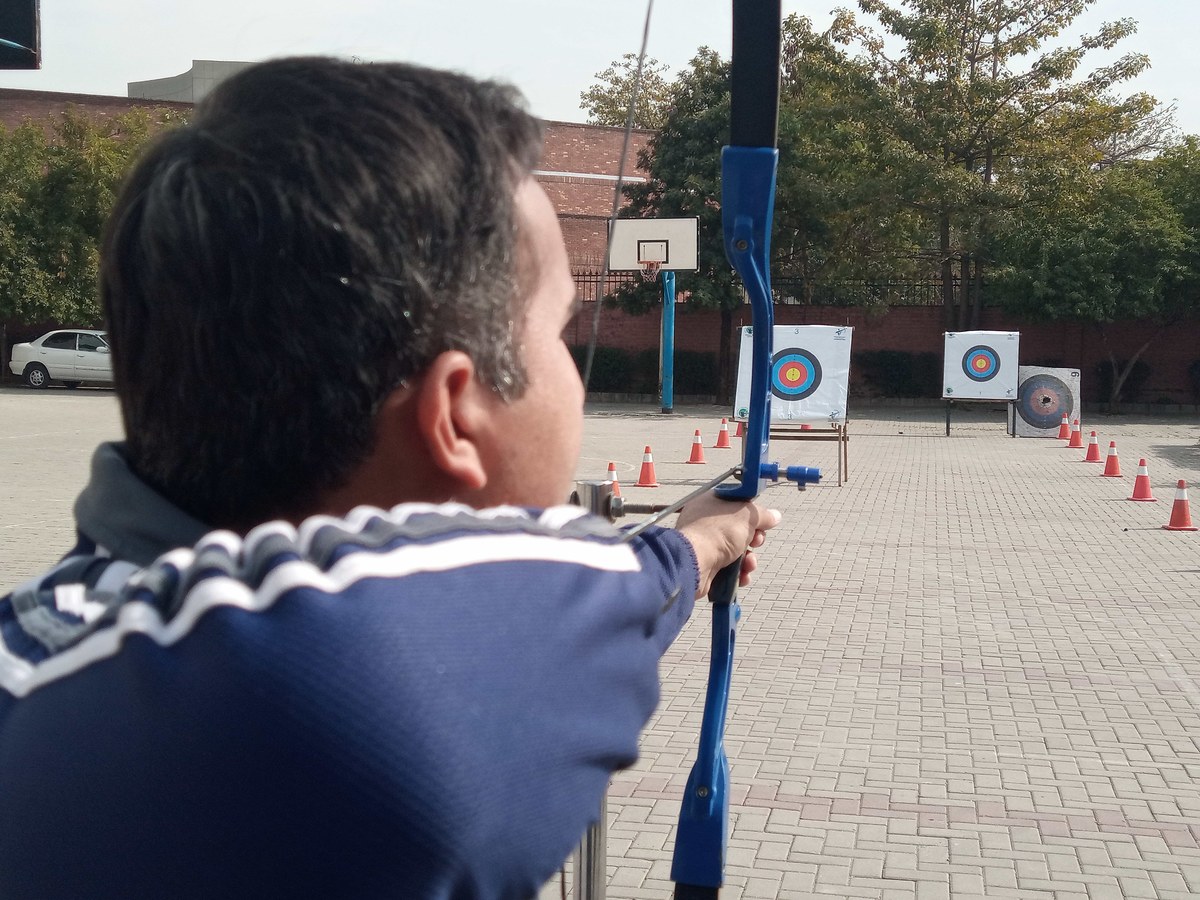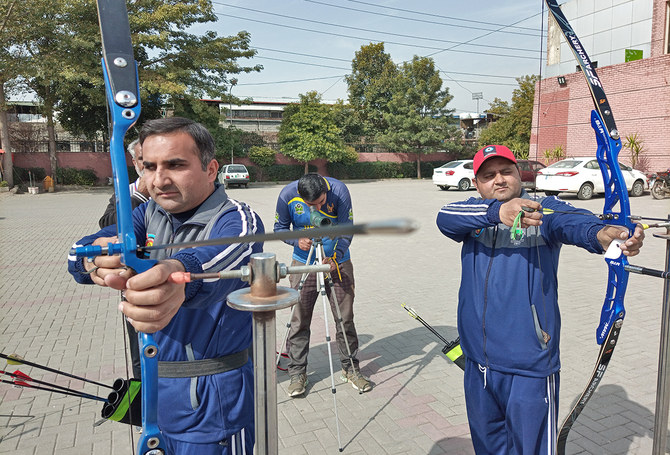RAWALPINDI: At the Shehbaz Sharif Sports Complex in the Pakistani garrison city of Rawalpindi, Waleed Aziz, a visually impaired archer, pulled an arrow out of the quiver earlier this month and placed the back of his hand against the tactile sight as he adjusted his position and aimed to hit the target.
Welcome to the training camp for the World Archery Para Championships 2022 scheduled to be held in Dubai from February 19-27. World Archery organizes a para-archery world championship every two years. The contest was first held by the International Paralympic Committee in 1998 and ownership was transferred to World Archery in 2009.
Though the Pakistan camp has been set up in the parking lot of a sports complex with only basic equipment available, members of the country’s national team of visually impaired archers told Arab News they were hopeful they would be able to shine in the upcoming contest.

Tanveer Ahmed prepares a shot during their training for the World Archery Para Championship 2022 at Shahbaz Sharif Sports Complex in Rawalpindi, Pakistan, on February 8, 2022. (AN Photo)
The national team will compete with eight other participating countries and all archers in the category will be blindfolded.
“Although they [visually impaired archers] cannot see but their five other senses give them more strength to focus,” Aziz, a school principal by profession, told Arab News on Tuesday. “It is a game of focus: How you set the target and how you shoot it.”
He said other important strengths included confidence, balancing and discipline.
Professional blind archery in Pakistan is the brainchild of Muhammad Ijaz, the team’s head coach, who though not an archer himself, took a course in Bangkok in 2015 and began training visually impaired people who aspired to compete at the international level. He is helped in his efforts by other former and current national level archers who also coach the Pakistani players.
Tanveer Ahmed, another archer in the blind team, lost an eye in 2003 when a ball hit his right eye during a cricket game. It was only years later, in 2017, that he heard that Ijaz was training visually challenged girls to shoot arrows with “significant precision.” Ahmed then began training with Ijaz with the aim to represent Pakistan at the international level.

Waleed Aziz (left) and Tanveer Ahmed, visually impaired archers, prepare a shot during their training for the World Archery Para Championship 2022 at Shahbaz Sharif Sports Complex in Rawalpindi, Pakistan, on February 8, 2022. (AN Photo)
Both him and Aziz have contested in several tournaments in the last few years.
“We are the first two blind players in Asia who have been issued archery licenses,” Ahmed said.
And though the journey here has not been easy, Ijaz said it was important for the team “to learn to live within its means.”
“We will be heading to Dubai on the 18th of this month,” the coach told Arab News. “We are largely bearing our own expenses, though we asked a few people, including the district administration [of Rawalpindi], for support, and they all promised to help.”
Government support for para-athletes in the country has been scarce, but Imran Jamil Shami, general secretary of the National Paralympic Committee, said the participation of the Pakistani archers in the Dubai contest was a “positive sign.”

Waleed Aziz prepares a shot during their training for the World Archery Para Championship 2022 at Shahbaz Sharif Sports Complex in Rawalpindi, Pakistan, on February 8, 2022. (AN Photo)
“The more these players participate in international competitions the more they will excel in the sport and their career,” he said.
Another senior official at the National Paralympic Committee who did not want to be identified said they had not even heard of blind archers in Pakistan.
“For any Pakistan representation internationally, it’s a moment to be proud,” the official said, adding that para-sports needed to be “organized systematically.”
“An institutional framework should be made,” the official said. “Policy should be made and this should be regularized.”


















